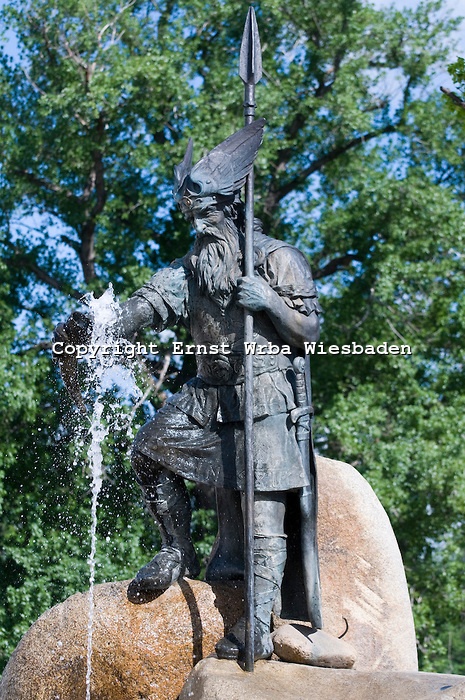Caladan
Agnostic Pantheist
While it is possible to trace some similarities between Greek and Norse mythology, or even Norse and Indo-Iranian mythologies, there are some interesting differences that can be observed when reading the Edda and comparing it to Homeric literature.
While I can see some general parallels between the two pantheons, for example with the elder Titans who fathered Zeus (Cronus and Rhea) and the Jötunn (popularizes as 'giants') ancestry of Odin (through Borr and Bestla), the narratives in the Norse and Greek mythologies display some interesting differences.
The Greek gods often quarrel between themselves over control of heroes and humans who have divine ancestry, they take sides during the Trojan war and directly and relentlessly interfere in the affairs of mortals, something which causes plenty of tension on Mount Olympus. However, we rarely see this with the Norse gods. This continues to another difference, while the Greek gods were masters of earthly affairs, and their Olympian existence had no mortal threats, the Norse gods' existence is filled with uncertainties which culminate in Ragnarok, when the gods will battle the giants and many of them will die. The universe in which the Æsir live in always seems to be threatened and its balance at stake. The World Tree is facing constant decay and the gnawing of Nidhogg at its root, the god Baldr dies which is linked to the future arrival of Ragnarok, and Loki, his children, and the giants pose various dangers to the gods.
Another interesting element is that the Norse gods have weaknesses which counters their strengths. For example Odin loses his eye, Tyr his hand.
It seems that life for the Æsir is much tougher than the life of the Olympian gods.
Some of the questions I'm pondering are: is this a reflection of Norse society? for example are mythological elements such as the feud and reconciliation between the Æsir and the Vanir a reflection of class tensions in Norse society?
Is life in the Norse universe reflect the challenges of the Norse people? and if so, what do you feel it most strongly reflects?
What can you trace from the Norse religion to general Indo-European and Indo-Iranian ancient religions? what do you find to be truly distinct in Norse mythology? and how do you relate it to Norse society?
While I can see some general parallels between the two pantheons, for example with the elder Titans who fathered Zeus (Cronus and Rhea) and the Jötunn (popularizes as 'giants') ancestry of Odin (through Borr and Bestla), the narratives in the Norse and Greek mythologies display some interesting differences.
The Greek gods often quarrel between themselves over control of heroes and humans who have divine ancestry, they take sides during the Trojan war and directly and relentlessly interfere in the affairs of mortals, something which causes plenty of tension on Mount Olympus. However, we rarely see this with the Norse gods. This continues to another difference, while the Greek gods were masters of earthly affairs, and their Olympian existence had no mortal threats, the Norse gods' existence is filled with uncertainties which culminate in Ragnarok, when the gods will battle the giants and many of them will die. The universe in which the Æsir live in always seems to be threatened and its balance at stake. The World Tree is facing constant decay and the gnawing of Nidhogg at its root, the god Baldr dies which is linked to the future arrival of Ragnarok, and Loki, his children, and the giants pose various dangers to the gods.
Another interesting element is that the Norse gods have weaknesses which counters their strengths. For example Odin loses his eye, Tyr his hand.
It seems that life for the Æsir is much tougher than the life of the Olympian gods.
Some of the questions I'm pondering are: is this a reflection of Norse society? for example are mythological elements such as the feud and reconciliation between the Æsir and the Vanir a reflection of class tensions in Norse society?
Is life in the Norse universe reflect the challenges of the Norse people? and if so, what do you feel it most strongly reflects?
What can you trace from the Norse religion to general Indo-European and Indo-Iranian ancient religions? what do you find to be truly distinct in Norse mythology? and how do you relate it to Norse society?

